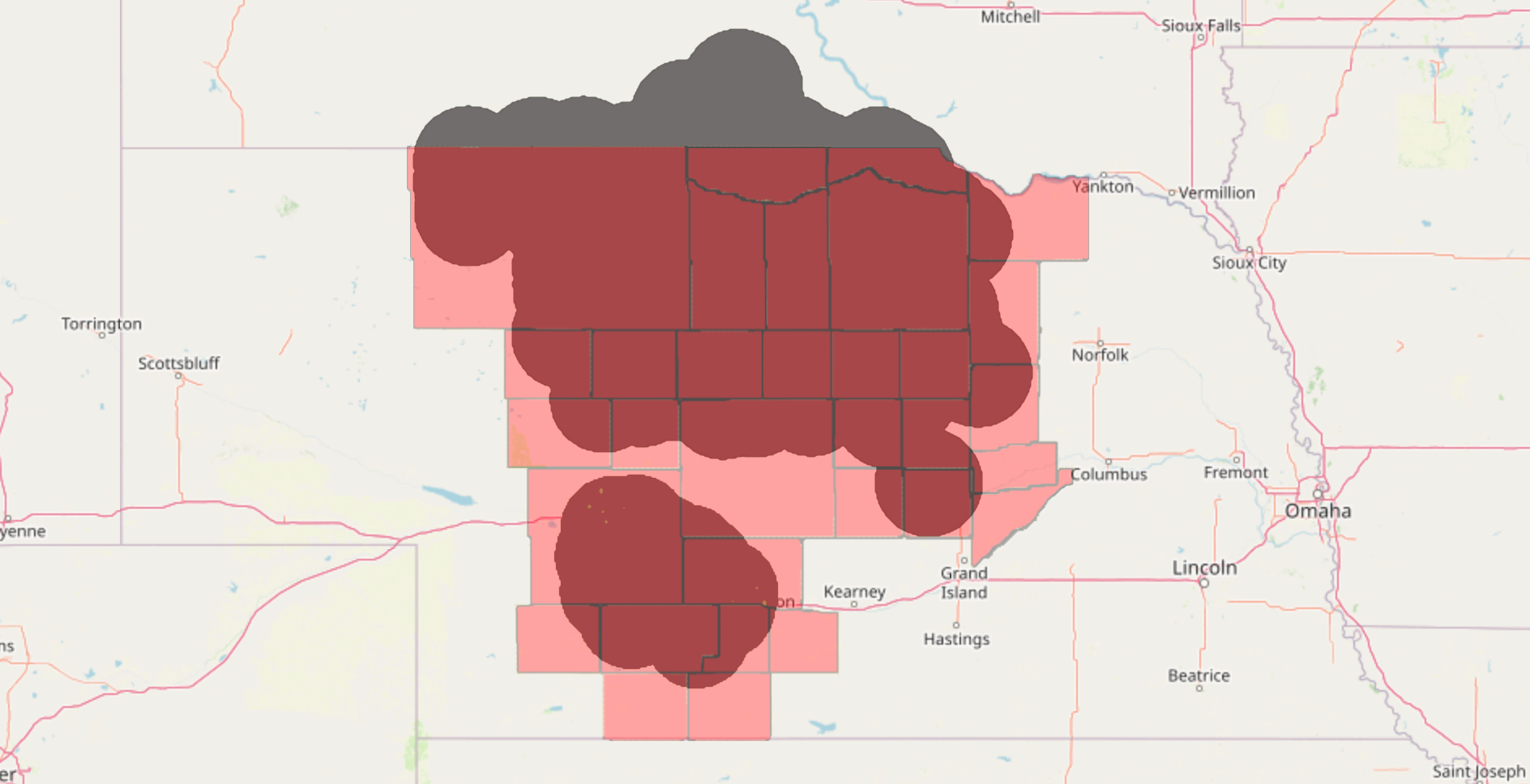
When the EPA in January extended the registrations of the herbicides Enlist One (2,4-D) and Enlist Duo (2,4-D and glyphosate) for seven years, dozens of counties were excluded from the registrations, including 32 in Nebraska. The labels approved in January explicitly prohibited the use of Enlist One or Enlist Duo in these counties. Two months later, the EPA approved registration amendments for the two products, allowing their use in many of the previously excluded counties, including all of those in Nebraska.
So, what was this all about?
According to the EPA, Corteva (the Enlist registrant) submitted draft labels for the two products in May 2021 as part of the registration extension process. On these labels, Corteva proposed excluding 128 counties from the products’ registrations because the registrant predicted the American Burying Beetle (a federally listed threatened species) was present in those counties. Thus, when EPA conducted its endangered species assessment for the Enlist herbicides, the Agency did not assess endangered species impacts in those 128 counties.
Shortly after the EPA extended the registrations of Enlist Duo and Enlist One, Corteva requested a registration amendment which would add the previously excluded counties to the product labels.
By this point in the process, the labels already included detailed requirements for drift and runoff prevention. EPA imposed these requirements to protect listed (and non-listed) species in areas approved by the January labels for Enlist herbicide applications. When reviewing Corteva’s amendment request, EPA took these already-imposed restrictions into consideration when assessing endangered species impacts in the 128 new counties. It found that the existing label requirements would make it unlikely for the Enlist products to jeopardize listed species or critical habitat in those areas. Furthermore, using a more detailed species range map, it found less than 1% overlap between the American Burying Beetle’s range and the Enlist herbicides’ “action area” (i.e., corn, soybean, and cotton fields). EPA was therefore able to say that it anticipates no effect on the American Burying Beetle from Enlist herbicides, and it approved the products for use in the additional 128 counties.
Under the Endangered Species Act (ESA), the EPA is required to formally consult with the Fish and Wildlife Service (FWS) and/or the National Marine Fisheries Service (NMFS) when it believes that the registration of a pesticide is Likely Adversely Affect (LAA) a federally threatened/endangered species or its critical habitat. The formal consultation process is immensely time-consuming and does not typically end until well after pesticide registrations (or reregistrations) are approved. The EPA itself estimates that, “in past decades,” it has met its ESA obligations “for less than 5% of the thousands of pesticide actions it completes annually” under its FIFRA authority. This has opened the Agency up to lawsuits from environmental groups. The Enlist registration extensions likely represent an attempt by the Agency to incorporate endangered species protections earlier in the registration process, in part to preempt ESA-related lawsuits. As disruptive as the fluctuating Enlist labels may have been for growers earlier this year, court orders resulting from litigation can be far more so. (Recall when the Ninth Circuit Court of Appeals unilaterally vacated the registrations of the dicamba herbicides XtendiMax, FeXapan, and Engenia in the summer of 2020, effective immediately.)
For a more in-depth look at EPA’s workplan for meeting its ESA obligations moving forward, check out the Agency’s 2022 publication, Balancing Wildlife Protection and Responsible Pesticide Use: How EPA’s Pesticide Program Will Meet its Endangered Species Act Obligations.
The formal ESA consultation for the Enlist herbicides is ongoing. If the consultation determines that the herbicides jeopardize listed species or their critical habitat, geographical use restrictions would likely be implemented in the form of endangered species bulletins on Bulletins Live! Two, although further label amendments are not out of the question.